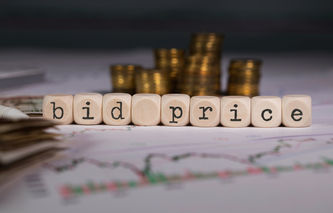Definition
The term market maker refers to a member of an exchange that buys and sells options or stock for their own account. Market makers also have the responsibility of maintaining a fair market in the commodity or securities in which they specialize.
Explanation
A market maker can be a company or an individual that provides prices to both buy and sell securities held in inventory. The New York Stock Exchange (NYSE) have designated market makers, also referred to as specialists, that provide liquidity to a security. They do this by not only matching buyers with sellers, but also by trading from their own account when a temporary buy and sell side imbalance occurs.
In exchange for providing liquidity, market makers are provided with trade execution advantages. Market makers are also compensated via bid-ask spreads, sometimes referred to as market maker spreads. While the bid-ask spreads may seem relatively small, market makers deal in relatively large volumes of a security.
Since the role of a market maker is to provide liquidity in a security, they are willing to immediately take the opposite position on every trade. For example, if a trader would like to sell 1,000 shares of 3M stock, the market maker will immediately purchase the 1,000 shares. In the same manner, if a trader would like to purchase 2,000 shares of 3M, the market maker stands ready to sell 2,000 shares. The willingness to make a market in 3M stock ensures liquidity in these securities, thereby maintaining the trader's confidence in the stock market.



